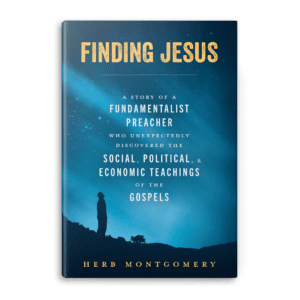
As we finish our look at sacrificing our humanity to change to the world, another source worth listening to on this point is womanist scholar Delores Williams, author of Sisters in the Wilderness. Commenting in response to Brown and Parker’s essay, Williams states, “Their critique of Martin Luther Kings, Jr.’s idea of the value of suffering of the oppressed in oppressed-oppressor confrontations accords with my assumption that African-American Christian women can, through their religion and its leaders, be led passively to accept their own oppression and suffering—if the women are taught that suffering is redemptive” (p. 176-177).
Welcome Readers! Please subscribe to Social Jesus Here.
(Read this series from the beginning at Part 1 and Part 2.)
In the paragraphs that follow, Williams discusses the ways that Brown’s and Parker’s critiques resonate with the womanist god-talk Williams affirms about Jesus.
Social location matters. The privileged, the propertied, and the powerful may at times need to lean into some sacrifices to live into life-giving ways for and with those who are presently being harmed by systemic injustice. But to call even these forms of sacrifice “self sacrifice” is a misnomer. When the powerful, propertied, and privileges practice this kind of sacrifice, their humanity, their self, is being reclaimed, not sacrificed. Some sacrifices put us back in touch with our selves.
In our story this week, Matthew’s Jesus recognizes a system where the marginalized are already being sacrificed. In this second temptation, this Jesus does not ask them to sacrifice themselves further. His liberation will be a restoring and reclaiming of one’s humanity, not a sacrificing of it. We don’t need to tempt fate, God, or the consciences of our oppressors in ways that are lethal to oppressed communities. To trust the moral conscience of oppressors or abusers is dangerous business.
Lastly Jesus sees a vision of the kingdoms of the world—if he would just bow down to the tempter. In Matthew, Jesus will liberate not by obtaining imperial power or rule as in this last temptation, but by standing up for the humanity of the downtrodden, the marginalized, the underprivileged, and the excluded. For this Jesus, worshipping God and God only was synonymous with loving one’s neighbor as one’s self and practicing the golden rule.
Today, I believe these legends of Jesus’ temptations in the wilderness can still inform the lives of Jesus followers working to shape our world in more just and compassionate ways. We’ll need to interpret them differently than the original audience did, but we can still interpret them in life-giving ways for our society.
How do these three temptations resonate with you?
 Herb’s new book, Finding Jesus: A story of a fundamentalist preacher who unexpectedly discovered the social, political, and economic teachings of the Gospels, is now available at Renewed Heart Ministries.
Herb’s new book, Finding Jesus: A story of a fundamentalist preacher who unexpectedly discovered the social, political, and economic teachings of the Gospels, is now available at Renewed Heart Ministries.














